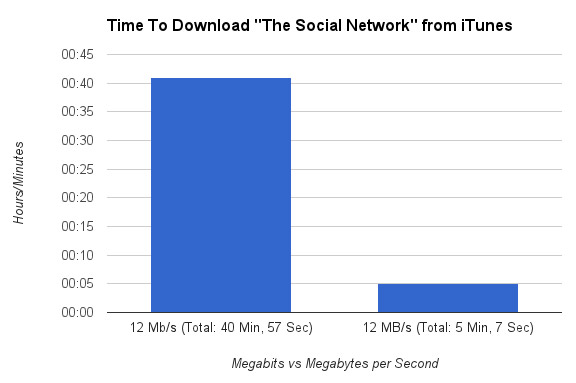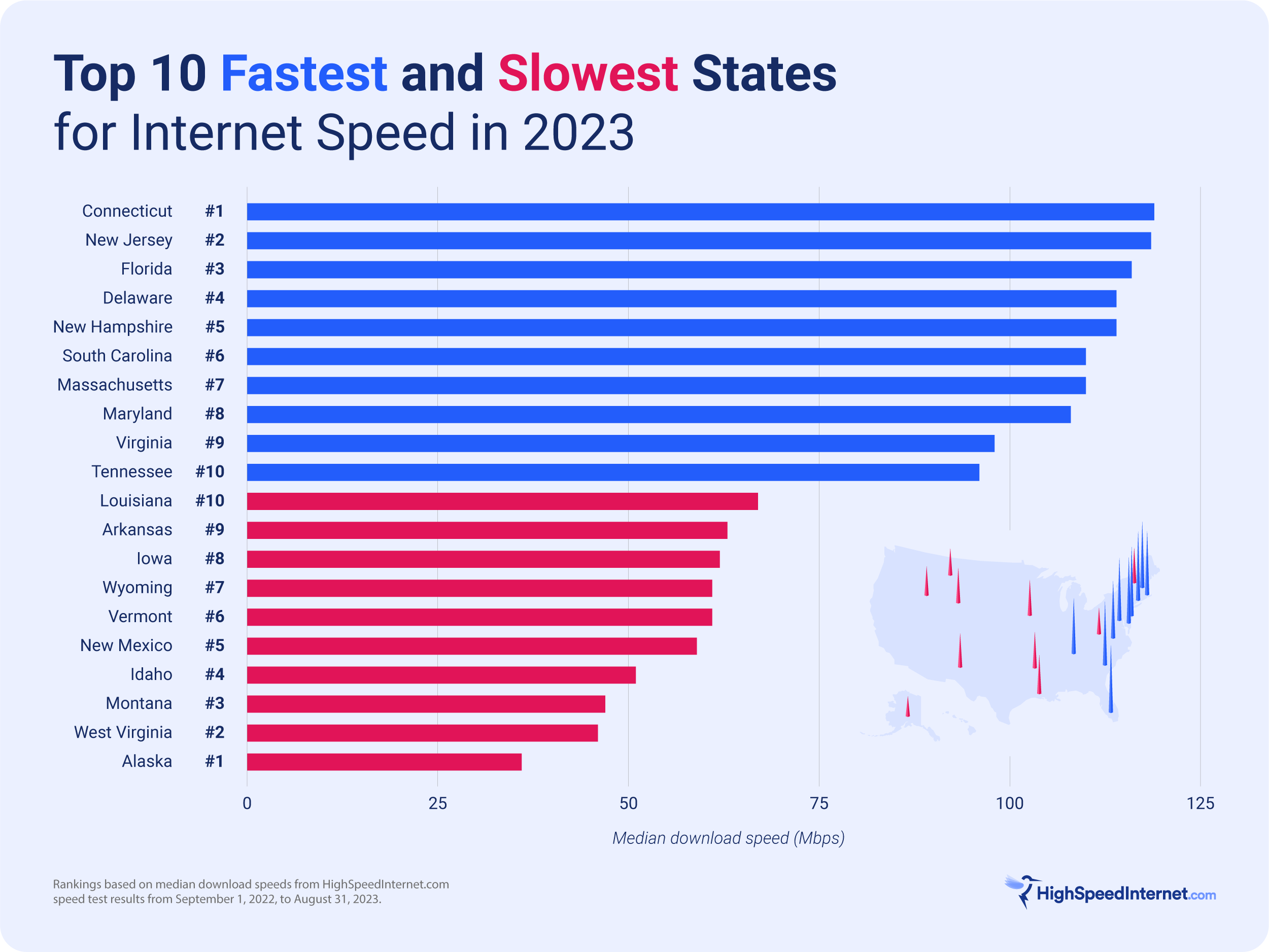Discovering the Relationship Between Megabits Per Second and Download Speeds
Discovering the Relationship Between Megabits Per Second and Download Speeds
Blog Article
Exactly How Megabits Per Second Influence Your Online Tasks
The concept of megabits per second (Mbps) plays a critical duty in shaping our online experiences. Greater Mbps can enhance efficiency and decrease disruptions, while insufficient speeds might foster aggravation and inadequacy.
Comprehending Megabits Per Second
When considering net rate, it's necessary to recognize the idea of megabits per second (Mbps), which acts as a common measurement for data transfer rates. This statistics quantifies exactly how much information can be transmitted over a web link in one second, giving a clear understanding of performance capacities - Megabits Per Second. For context, one megabit amounts to one million little bits, and Mbps is commonly utilized to express data transfer for various on the internet tasks
A greater Mbps indicates a quicker internet link, allowing customers to perform tasks such as downloading and install documents, browsing sites, and involving in online video gaming extra efficiently. Regular surfing calls for around 1-5 Mbps, while streaming high-definition video might demand 5-25 Mbps. Comprehending these demands is critical for identifying the ideal internet speed needed for particular activities.
Furthermore, the variety of gadgets linked to a network can affect general efficiency. Several individuals streaming, video gaming, or downloading and install at the same time can stress offered transmission capacity, causing slower rates - Megabits Per Second. Reviewing individual online routines and demands is essential in picking a net strategy that lines up with one's needs, guaranteeing a seamless electronic experience
Streaming and Buffering Issues
Streaming high-def material has become a staple of modern on-line amusement, yet it is typically come with by irritating buffering problems. These interruptions can dramatically take away from the checking out experience, resulting in discontentment and potential loss of target market involvement. Buffering takes place when the data transmitted from the streaming solution is not received swiftly sufficient to preserve a smooth playback, usually because of insufficient internet rate determined in megabits per second (Mbps)

Additionally, real-time streaming can be impacted by network congestion, which takes place when multiple tools share the very same data transfer. Consequently, enhancing connection speed and ensuring adequate Mbps is crucial for a smooth streaming experience. As streaming solutions proceed to evolve, recognizing the influence of Mbps on buffering problems continues to be critical for customers seeking nonstop entertainment.
Online Gaming Efficiency
The impact of net speed on on-line activities expands past streaming, considerably influencing online gaming efficiency. In competitive video gaming, low latency and high data transfer are critical for a seamless experience. A fast connection decreases lag, allowing gamers to react promptly to in-game occasions, which can be the distinction between triumph and loss.
Bandwidth, gauged in megabits per second (Mbps), plays a vital function in supporting numerous devices and pc gaming platforms concurrently. Insufficient data transfer can result in dropped links or lowered game top quality, negatively influencing gameplay. As an example, on-line multiplayer video games need significant data transfer, specifically during peak video gaming hours when countless players are online.
Fast-paced first-person shooters demand higher rates to keep responsiveness, while turn-based method games might operate fairly well on reduced speeds. As online pc gaming view website continues to develop, with increasing visual fidelity and more intricate multiplayer atmospheres, the demand for higher Mbps will just heighten.
Video Conferencing Top Quality
In today's digital landscape, video recommended you read clip conferencing top quality is heavily influenced by net speed, specifically in terms of bandwidth and latency. Top quality video clip calls need sufficient transmission capacity to transfer sound and video information effortlessly. Usually, a minimum of 1.5 Mbps upload and download speeds is suggested for basic interpretation video, while high-def video conferencing generally demands at least 3 Mbps.
Latency, or the hold-up in between sending and receiving information, additionally plays a crucial duty in the customer experience. Higher latency can lead to echo, lag, and disjointed communications, which can prevent collaboration and interaction throughout meetings.
Moreover, multiple participants in a video clip meeting can stress available bandwidth, requiring also greater rates. Network blockage, often triggered by simultaneous activities like streaming or downloading, can better deteriorate video high quality. Therefore, for companies counting on video clip conferencing for remote cooperation, recognizing the relationship between megabits per general and second communication quality is vital for preserving efficiency and improving online interactions.
Selecting the Right Web Plan
Selecting an appropriate internet plan is essential for making sure ideal performance in various online tasks, specifically in setups that require high bandwidth, such as video conferencing and online gaming. Megabits Per Second. When taking into consideration a net strategy, it is important to examine both the rate and data allowance to match your details use requirements
For homes with multiple individuals participating in synchronised tasks, a plan providing greater megabits per second (Mbps) is suggested. Usually, a minimum of 25 Mbps is appropriate for standard streaming and surfing, while strategies surpassing 100 Mbps are more suitable for even more intensive tasks. In addition, consider the nature of your online activities; video conferencing requires a minimum of 1.5 Mbps post speed, while online video gaming may require a lower latency yet constant connection.
Unlimited data strategies can protect against throttling and disruptions, specifically if hefty use is anticipated. By attentively picking an internet plan tailored click for more info to your demands, you can boost your on the internet experience, guaranteeing smooth, undisturbed accessibility to your recommended activities.
Conclusion
In conclusion, the significance of megabits per second (Mbps) fit online activities can not be overstated. Greater Mbps promotes seamless streaming, reduces buffering, enhances gaming experiences, and ensures top quality video conferencing. Conversely, inadequate transmission capacity can bring about irritating disturbances and lessened efficiency across different tasks. A detailed understanding of specific or home Mbps requirements is crucial for selecting a suitable net strategy that properly sustains varied online tasks and individual demands.

Generally, a minimum of 25 Mbps is suitable for standard streaming and surfing, while plans exceeding 100 Mbps are preferable for even more extensive tasks. In addition, take into consideration the nature of your online tasks; video clip conferencing needs at least 1.5 Mbps post rate, while online pc gaming may need a reduced latency however consistent link.
Report this page